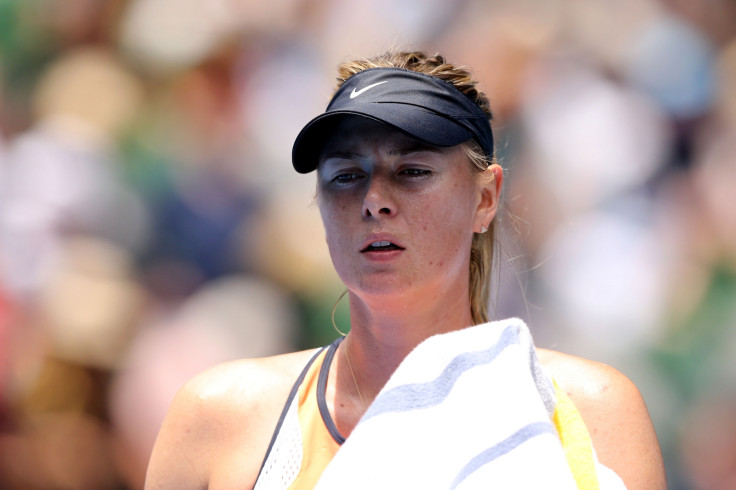ITF challenge Maria Sharapova criticisms after doping ban reduced to 15 months
The 29-year-old was originally suspended for two years in June after testing positive for meldonium.

The International Tennis Federation (ITF) has released a statement in response to recent claims made in the aftermath of the Court of Arbitration for Sport's (Cas) decision to reduce Maria Sharapova's suspension on appeal. The five-time Grand Slam winner was initially handed a two-year ban in June after testing positive for anti-ischemic drug meldonium during the Australian Open, but now stands to miss only 15 months. She will be eligible to return to the court on 26 April 2017.
Sharapova, who claimed to have been taking meldonium since 2006 on medical grounds and was unaware that it had been added to the World Anti-Doping Agency's list of banned substances in January, was scathing of the ITF following that Cas decision, claiming that she was "starting to think" the governing body was trying to make an example of her.
The ITF have now disputed Sharapova's claim that they were seeking to suspend her for four years, reiterating that they "stated clearly that it was the responsibility of the Independent Tribunal – and subsequently the CAS Panel – to determine what the appropriate sanction should be".
They also took umbrage with the insinuation that the initial independent tribunal may not have been entirely neutral, revealing that Sharapova's legal team agreed in writing that they had no objection to any of those appointments.
On the suggestion that they should have given specific notice to Eastern European athletes regarding meldonium being added to Wada's banned list in January, the ITF claim it is false that they knew before 2016 that the drug, manufactured in Latvia, was commonly used by athletes from that region.
"This is not true," the statement continues. "In fact, it was accepted by Ms. Sharapova in the hearing before CAS that the ITF did not know before 2016 about the extent to which meldonium was used by athletes from any region, or that Ms. Sharapova herself was using meldonium.
"In addition to Ms. Sharapova's failure to declare her use of meldonium on any of her doping control forms, the WADA monitoring program is conducted anonymously, so even WADA itself does not know the names of athletes using the substances being monitored. Furthermore, WADA does not inform any anti-doping organisation about the prevalence of such use until it publishes the results of the monitoring program, which for the 2015 monitoring program was in May 2016."
Sharapova, who has slipped to 95 in the WTA singles rankings, strenuously denies ever using meldonium to enhance performance and claims the fact that it was recommended by a doctor, made completely legal for 10 years and "taken as aspirin in Russia" rendered her shocked by the ban. The ITF, meanwhile, says it believes that "appropriate steps" were taken to make people aware of the changes to the banned list, although they concede that they are continuing to review how they communicate those alterations in order to avoid such scenarios where players claim that they were simply unaware.
© Copyright IBTimes 2025. All rights reserved.






















